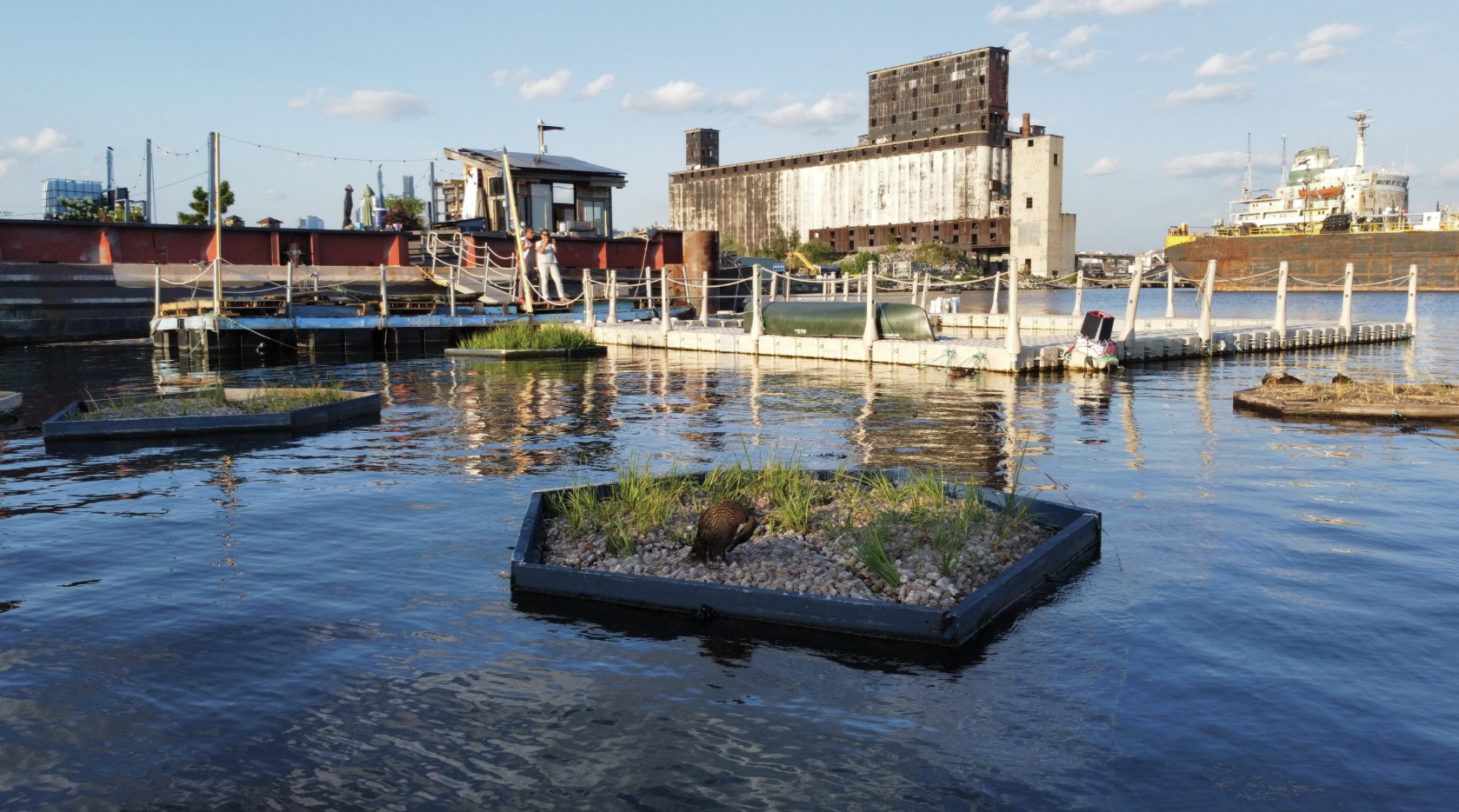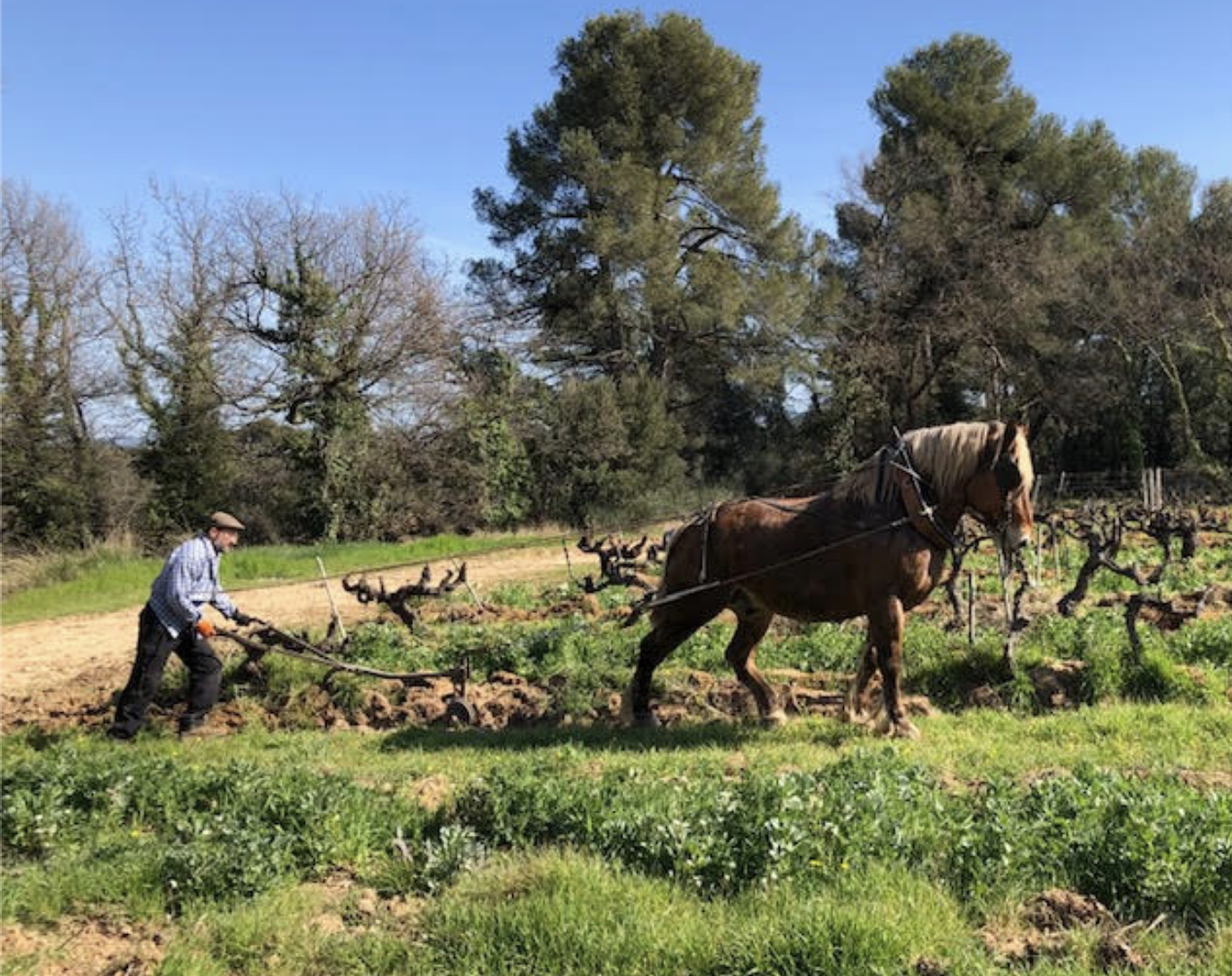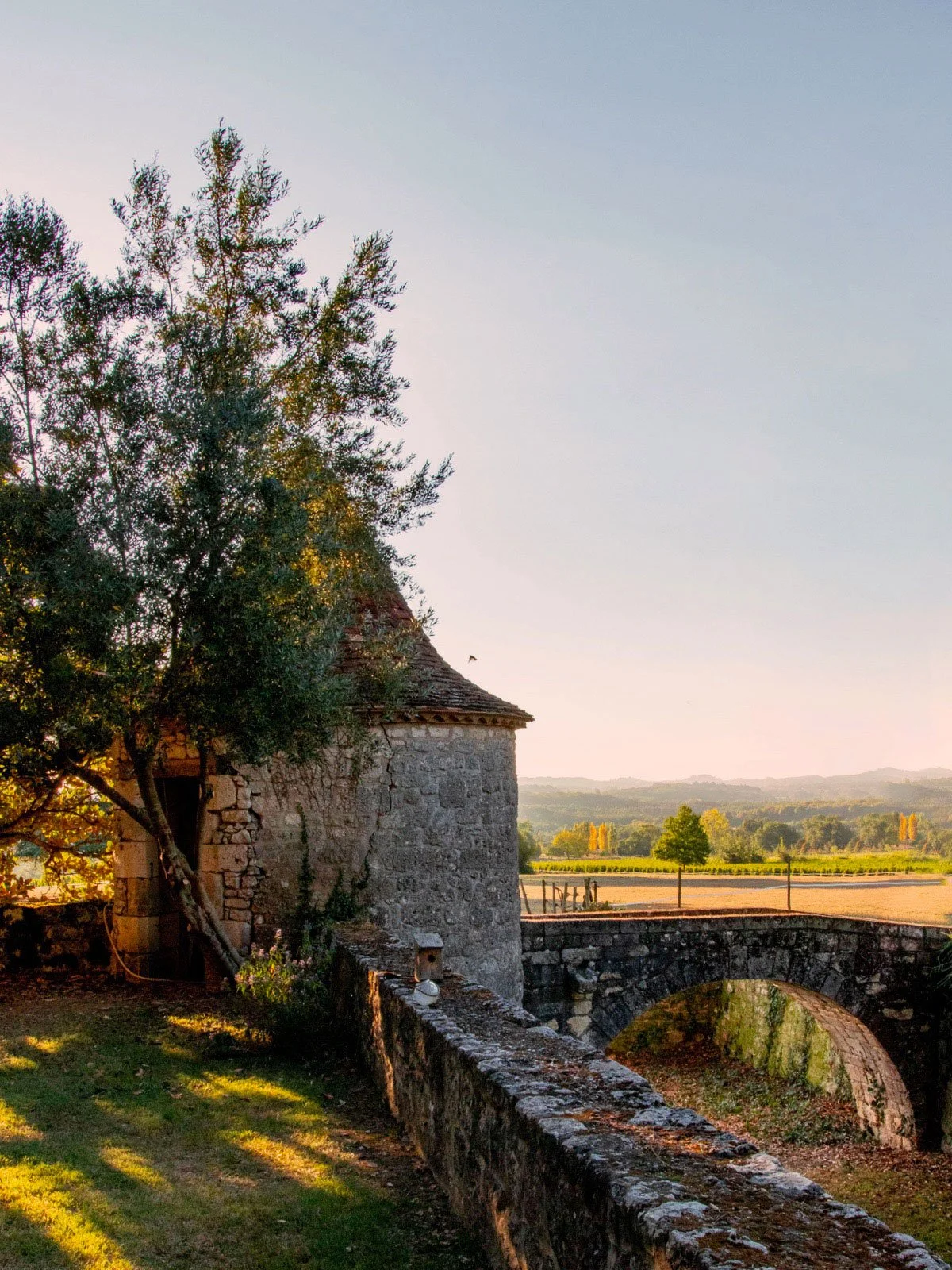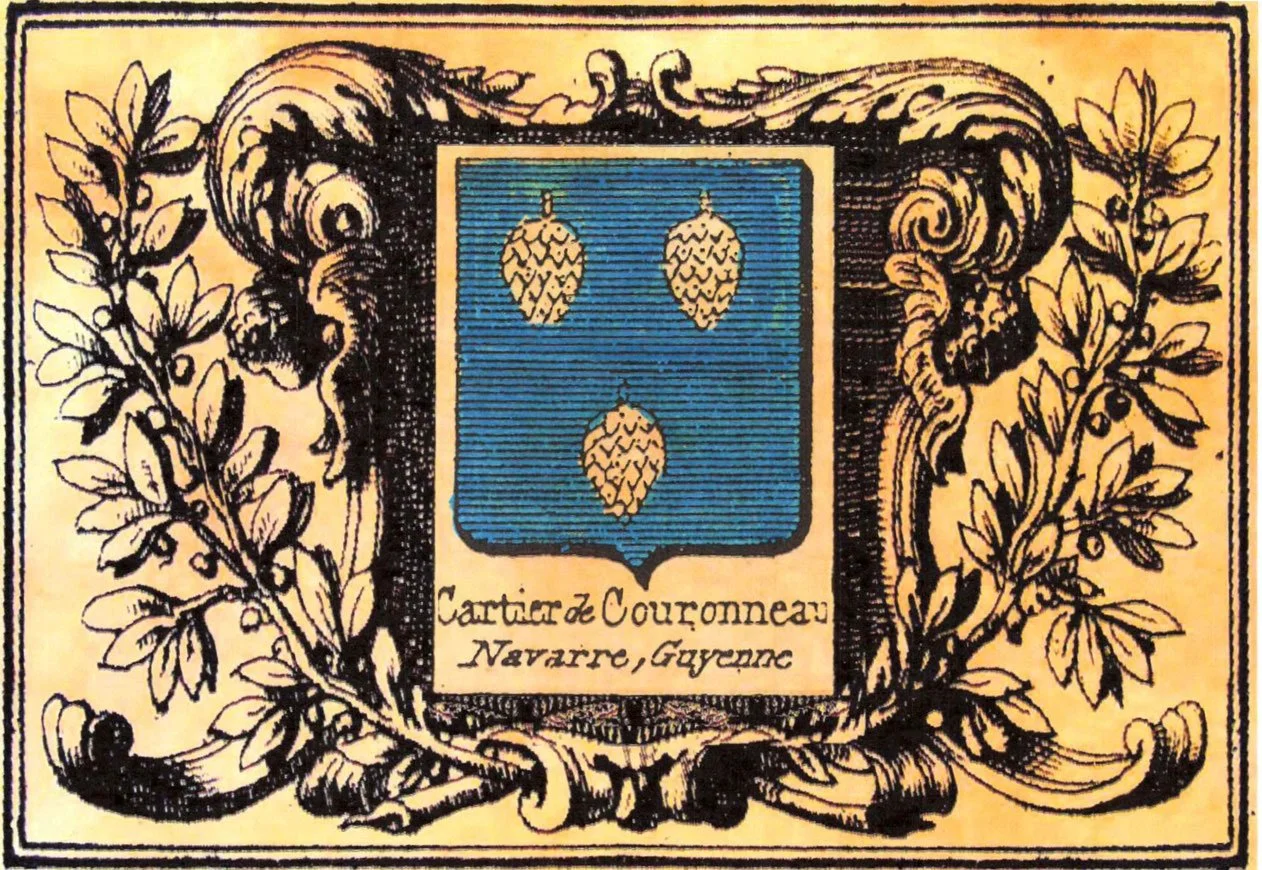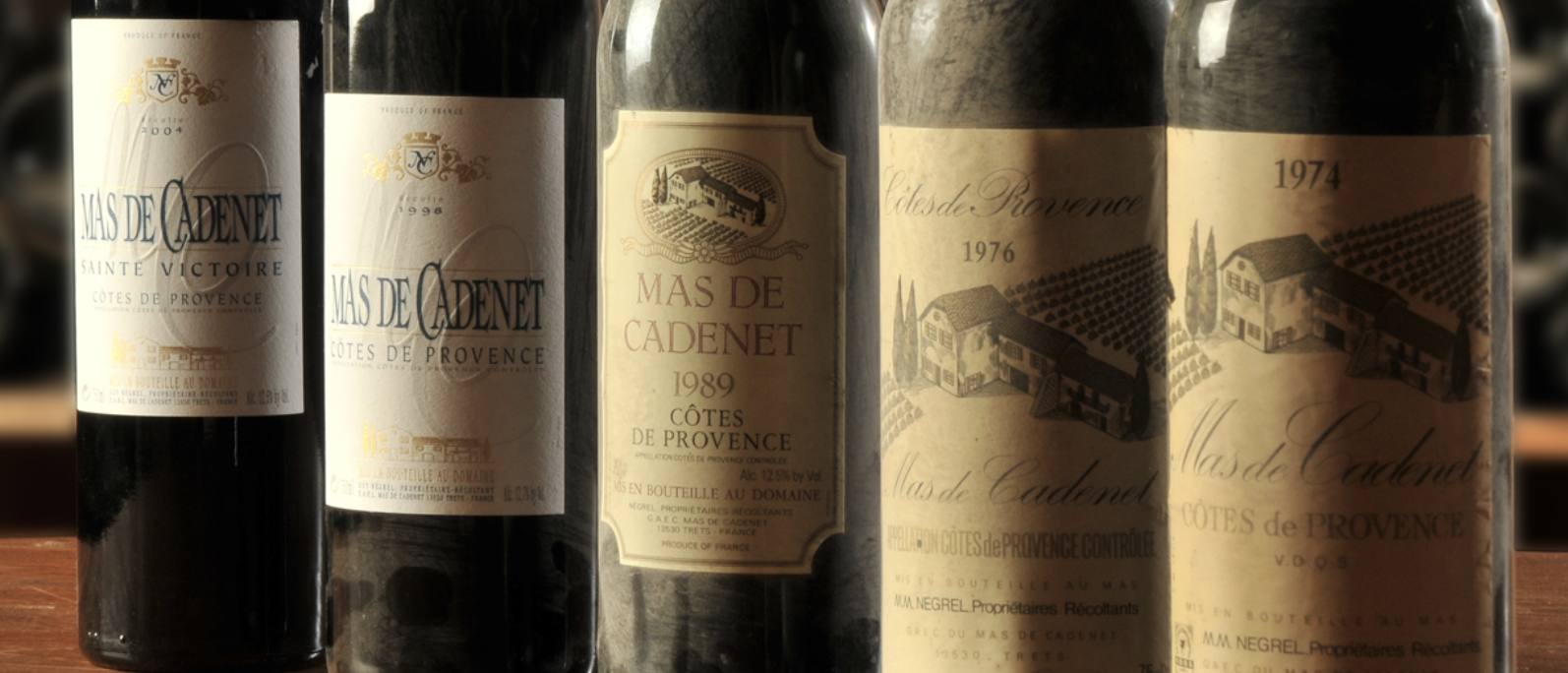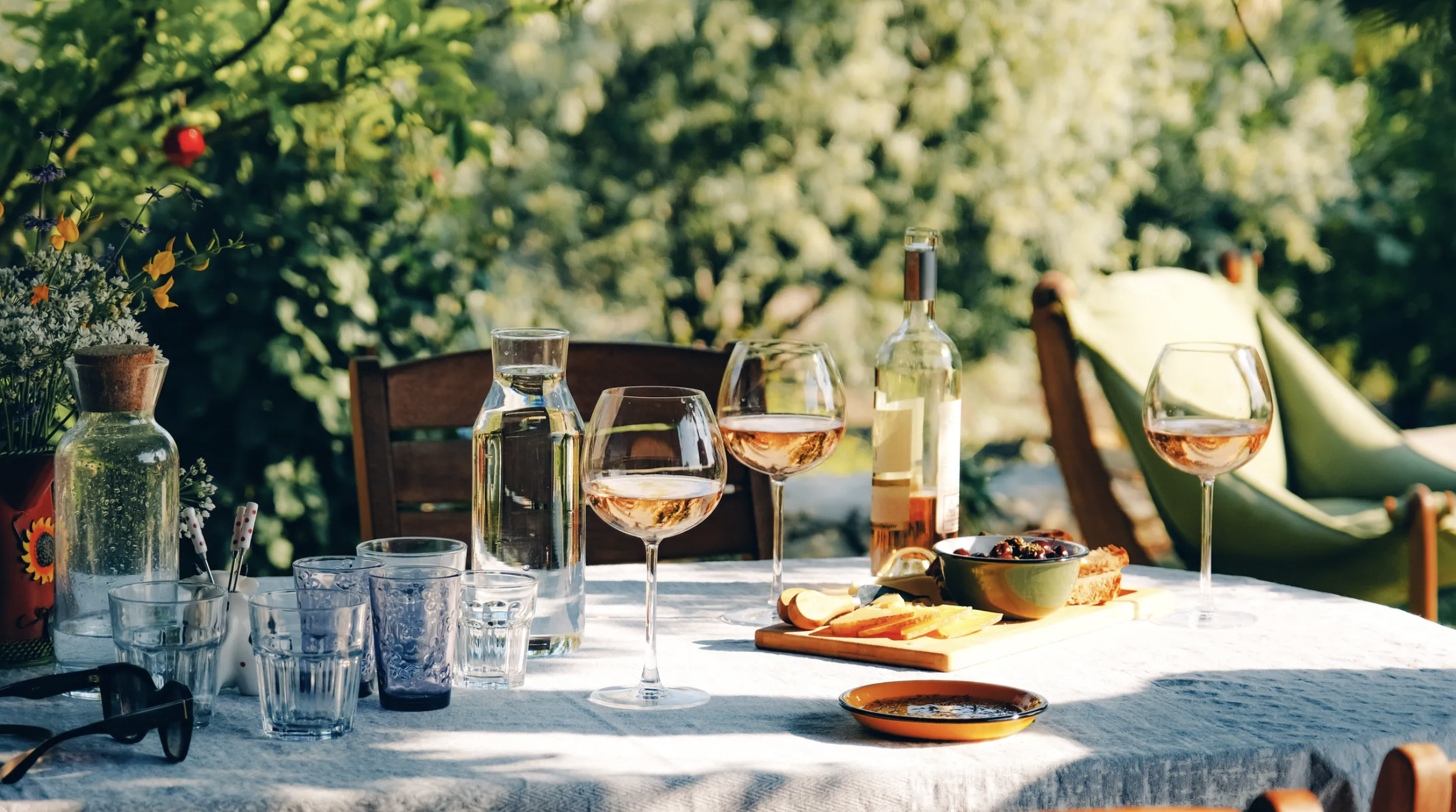RETI Center’s Cork Gardens
New York City has over 500 miles of coastline which used to be marshes, but now the vast majority is concrete, steel and stone. Floating gardens can help give us back the green edge our city needs to re-establish the aquatic ecosystem and the many ways it benefits the water and the land.
We partner with BlueBlock’s Floating Gardens, a modular system inspired by lilypads, built entirely of salvaged and reclaimed materials, and float on a bed of recycled corks. Designed as a kit, they are easily assembled and launched by volunteers and barge visitors.
Chateau de Mille
Château de Mille, the oldest winery in the Luberon and summer home of Popes, once awarded the highest regional mark by renowned critic Robert Parker in the mid-eighties, is on a mission to reclaim its legacy of excellence. The Château has embarked on an ambitious program to craft exceptional red, rosé, and white wines through modern, sustainable, and organic practices.
With old vines yielding concentrated and aromatic grapes at low quantities, the estate's unique terroir—northern exposure, altitude, and cool nights—imparts remarkable vivacity and tension to its wines. Certified organic by Ecocert in 2022, the winery combines state-of-the-art techniques with minimal intervention, using a variety of vessels including concrete, stainless steel, oak vats, concrete eggs, and terracotta amphoras. This meticulous approach ensures that each wine reflects the full expression of Château de Mille's distinguished terroir.
Chateau Couronneau
Over 30 years ago, Château Couronneau converted their vineyard to organic farming, developing innovative methods in sowing, soil management, treatment optimization, and disease prevention through prophylaxis. They focused their efforts on the needs of the vines, enhancing their growth conditions. These technical advancements have been showcased annually to over 1,000 winemakers during their open house events.Their transition to organic farming in 1997 was a pivotal step in the vineyard’s development. By rejecting all chemical inputs, Château Couronneau reimagined the management of their vines in a quest for harmony and respect for natural balance.
Mas de Cadenet
The Négrel family strongly believes that organic farming is the most appropriate way to express the minerality and nuances of its terroir. The family cultivates the vine with respect so that the terroir can deliver to the wine all its finesse, its density and its minerality.
Their actions stem from empirical reflections and a pragmatism founded in the observation of the living.
Organic farming is also an ethic that comes from respecting the work of past generations and the love of future generations who will inherit these lands. The notion of “family domain” makes sense here.
“We do not inherit the land of our parents, we borrow it from our children”.
The label focuses on mechanical work on soil, biological treatments for vines, animal manures, minimum additives in the wine.
Chateau Ksara
Château Ksara's natural corks are imported from Portugal, a country famous for its cork oak forests.
This tree has the characteristic of forming a cork layer of 3 to 5 cm on its trunk bark. Corks allow micro-oxygenation to take place during the aging process of the wine when it’s in the bottle.
As a natural product with a high colorific value, the wine cork can be exploited by the recycling plant as raw material. Testing has shown that 100 wine corks can produce enough steam to recycle 1 kilogram of paper. Furthermore, Château Ksara pledges to plant one oak tree with every 500 corks collected in 2022.
Two types of native oak trees, Maloul and Sindyan, will be planted as part of a reforestation plan of 3.5 Hectares of land in the West Beqaa neighboring the Barouk Natural Reserve.
Hunter’s Winery
Hunter's vineyard is deeply committed to sustainability, working closely with Sustainable Winegrowers New Zealand (SWNZ). They have implemented eco-friendly practices like mechanical under-vine weeding, making 40% of their vineyards herbicide-free, and composting grape marc to enrich their soils. Hunter’s wines are vegan certified, avoiding animal-derived ingredients, and they actively reduce energy consumption by optimizing cooling processes and using larger oak barrels to conserve resources.
On-site bottling emphasizes recycling, with most bottles now lightweight and containing 40% recycled glass, with plans to increase this to 70%. Hunter’s also fosters biodiversity through environmental restoration projects, including a native garden and a restored wetland that support local ecosystems. They use winery wastewater for irrigation and employ a mixed sward approach in vineyards, enhancing soil health and reducing mowing needs.
Pago de Balancines
Pago los Balancines is a unique enclave, protected for its exceptional landscape, which includes globally endangered flora. The vineyard is nestled between two mountain ranges, benefiting from unique climatic conditions and privileged soil, making it an ideal location for vine cultivation.
The Mastiff has accompanied herds for centuries, protecting them from wolves and bears during their movements across the peninsula. Recovering this breed and reintroducing it to livestock helps safeguard the great kings of the fauna, preventing their disappearance.
Mastiffs serve as loyal work companions, alongside eagles, owls, vultures, and various other birds, as well as lynxes, deer, wild boars, foxes, and countless other animal species that thrive in the area. These animals are central to another of their passions: life in Nature.
Buradan Cesme
Buradan Winery, established in 2010 in Çeşme – Ovacık, primarily produces rosé wine from Grenache grapes and a light red wine from Tempranillo grapes. Their first commercial production was in 2016, and by 2023, they produce about 4,500 litres annually, including 5,500 bottles of rosé and 500 bottles of red wine, with around 2,000 bottles of rosé distributed in New York and Miami. The winery operates organically with chateau-style production, using drip irrigation and bottling on-site.
Buradan is committed to empowering women through their “Women in Wine” social project, with 80% of their employees being female. They also offer an annual wine scholarship for women, which includes six months of viniculture practice in Italy, followed by two years in Turkey, where recipients share their knowledge with other women.
Lucien Arkas
Arkas has opened its fifth art center, Arkas Art Alacati, in Alacati, Izmir’s Cesme district, supported by Cesme Municipality. This new center aims to enrich Izmir’s cultural landscape by hosting contemporary art events and exhibitions, and features permanent and temporary exhibition halls, artist workshops, and a cafe for visitors. It is part of Arkas’s broader effort to make Izmir an art hub.
The center's inaugural exhibitions include a permanent display of Victor Vasarely’s works, a pioneer of the Op Art movement, and a temporary exhibition titled “New Lands,” curated by Dr. Necmi Sönmez. “New Lands” showcases 157 works by 155 young international artists under 40, highlighting diverse contemporary art trends from private collections across Türkiye and beyond. Arkas Art Alacati not only serves as a cultural space but also supports young and emerging artists, providing a platform for them to connect with audiences.
The center, which operates in a building allocated by the Cesme Municipality for 30 years, aims to promote year-round art engagement in Cesme, making it a cultural destination beyond the summer months. The initiative has been praised by Cesme’s Mayor and art professionals for enhancing the region’s cultural offerings and supporting the future of art in Türkiye.
